It’s always good to have family around to help with things like childcare, but some folks are unable to just do their jobs and offload all the work onto a well-meaning relative. Good intentions are often not enough as too many people have found out when “helping” a deadbeat relative.
A woman asked the internet for advice on what to do with the toddler she was taking care of, after her brother abandoned the child with her family. Readers debated the best course of action and a few gave some advice. We reached out to the person who made the post via private message and will update the article when she gets back to us.
Being a single parent is never easy

Image credits: DragonImages
So one woman wondered if she could let her own parents just take over
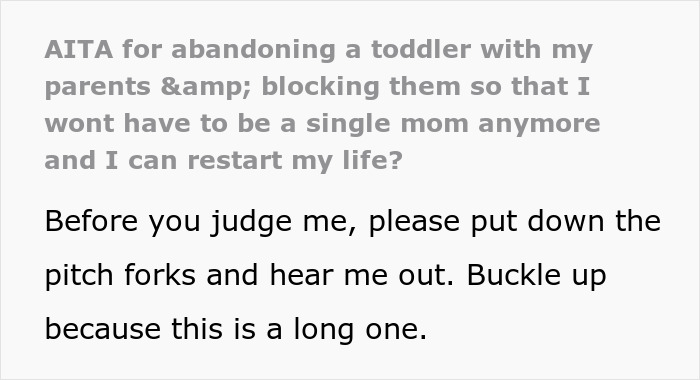
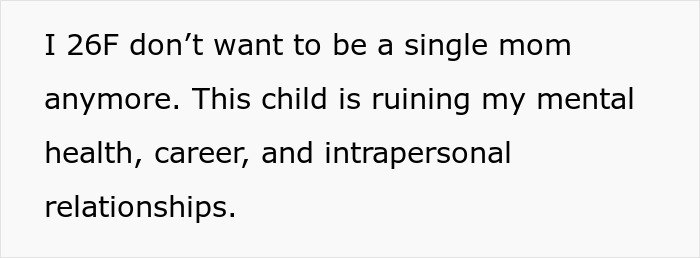
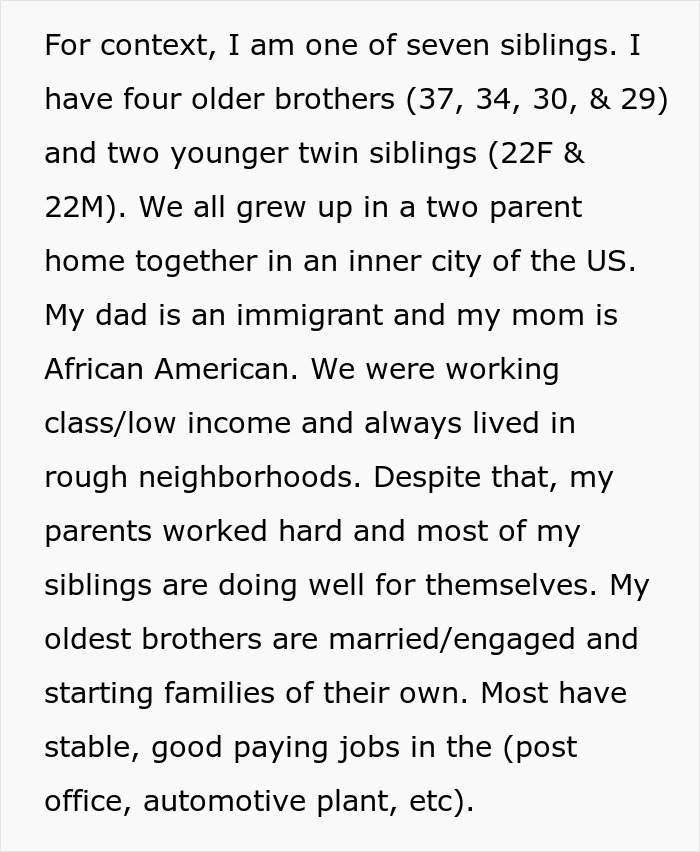


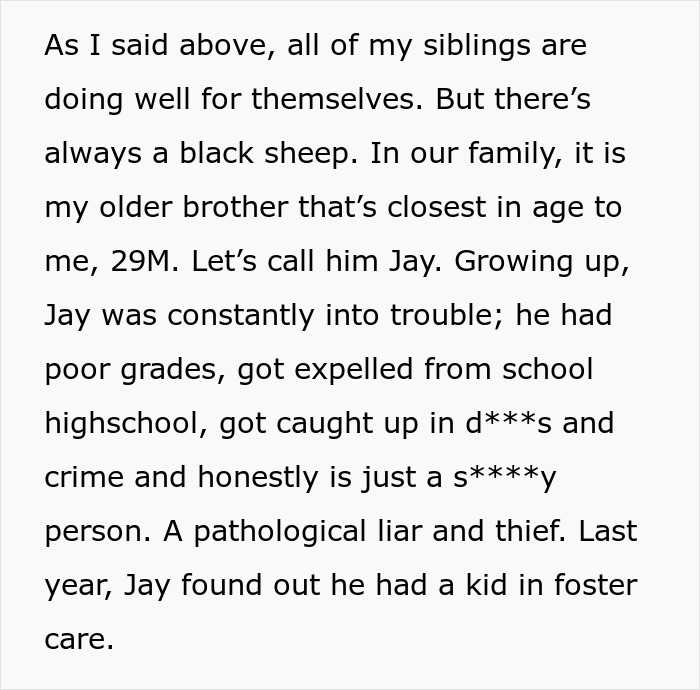
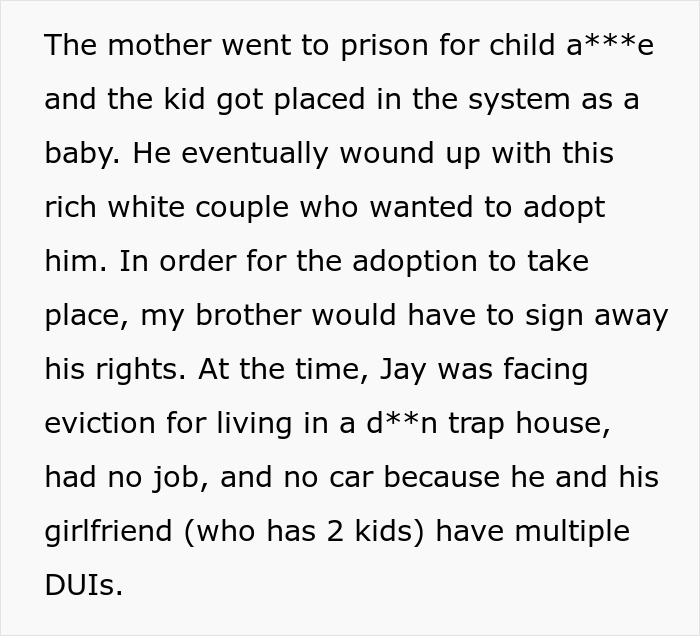
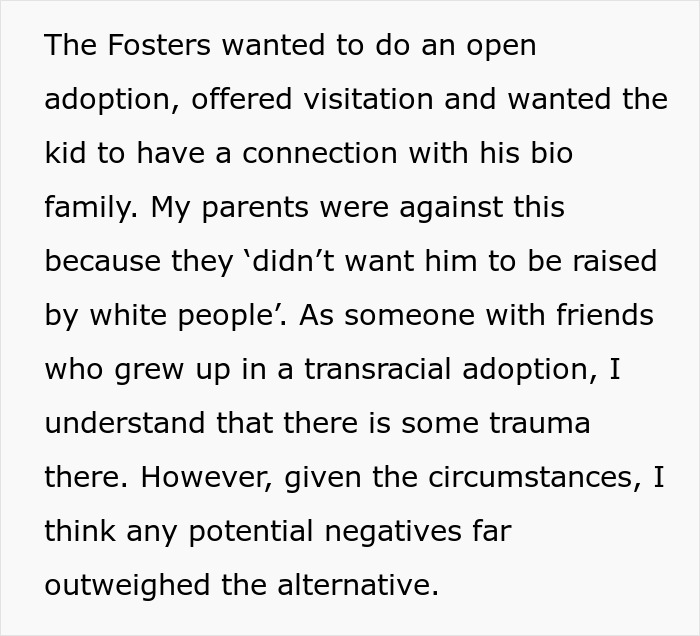
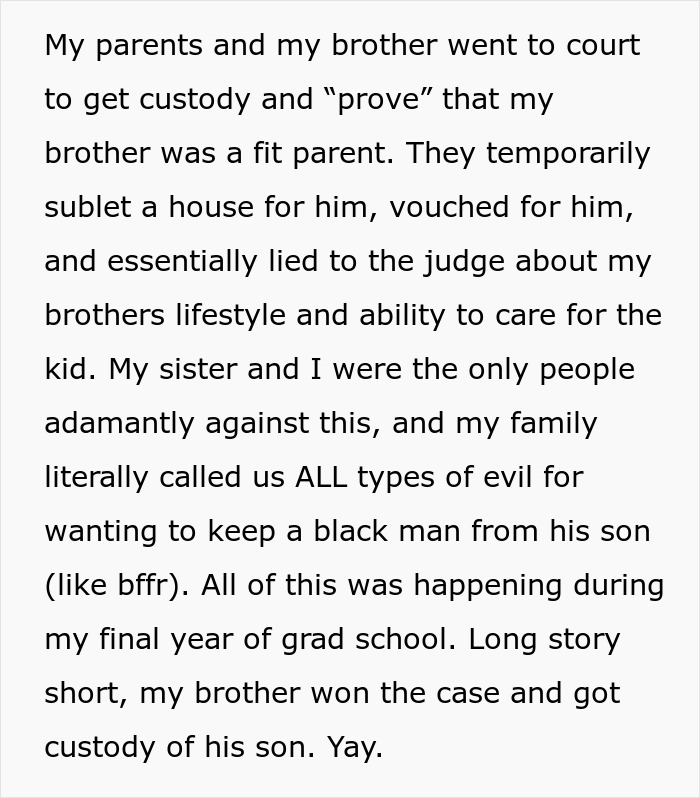
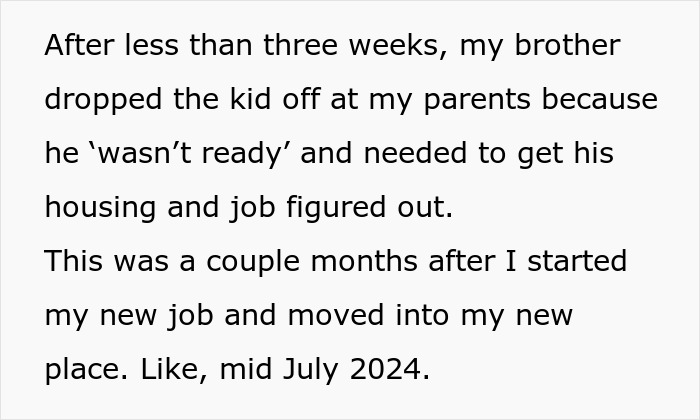
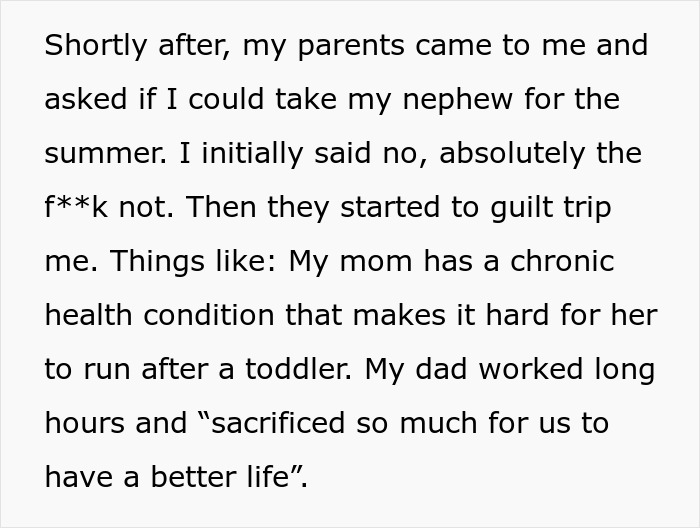
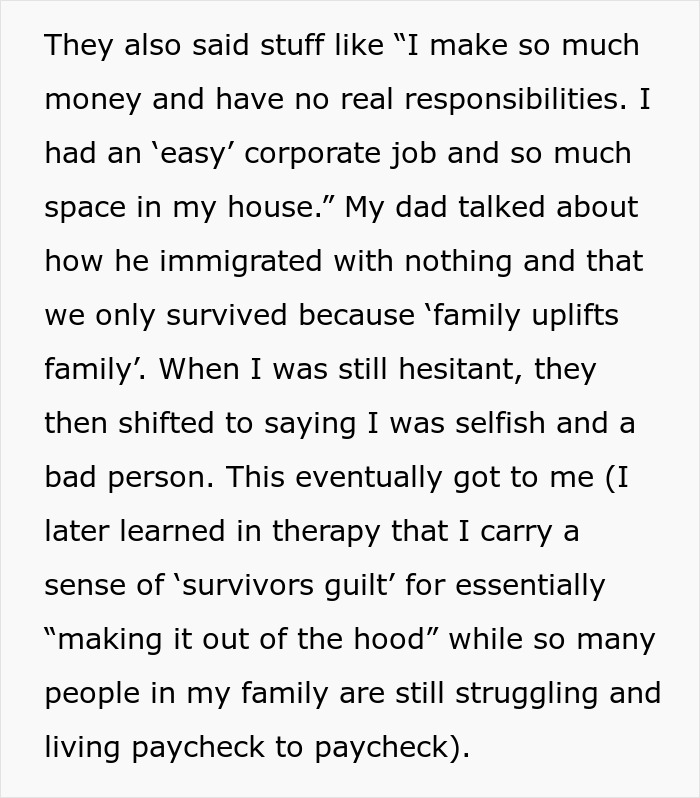
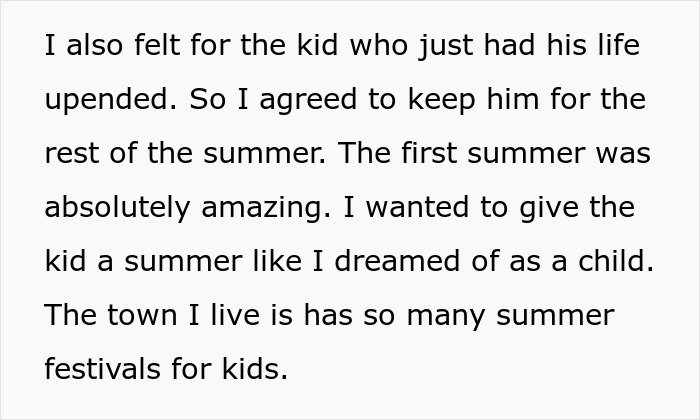





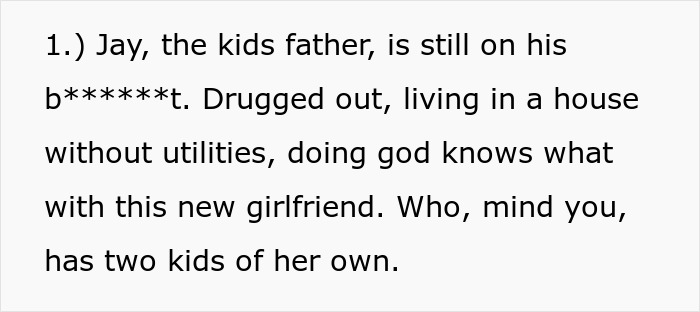

Image credits: DragonImages / envato (not the actual photo)
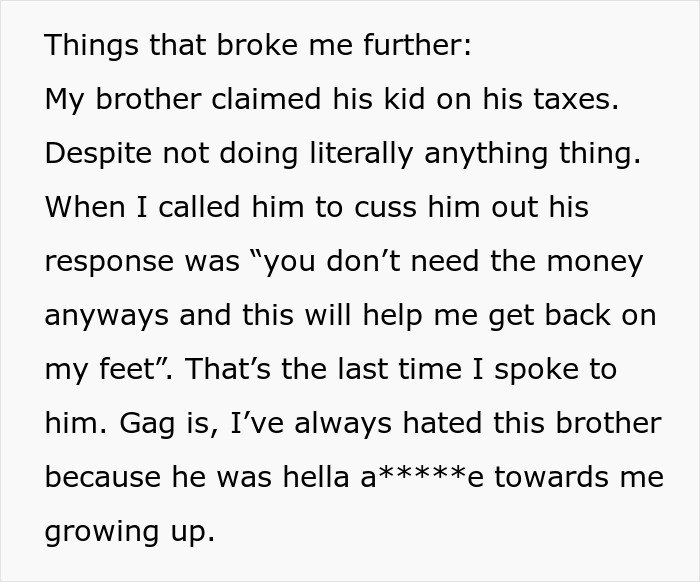
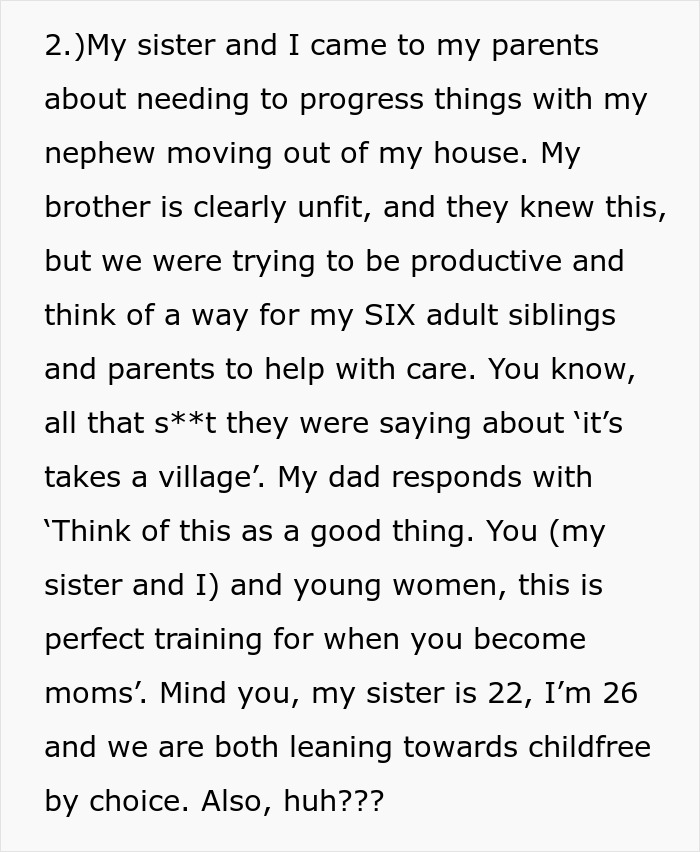

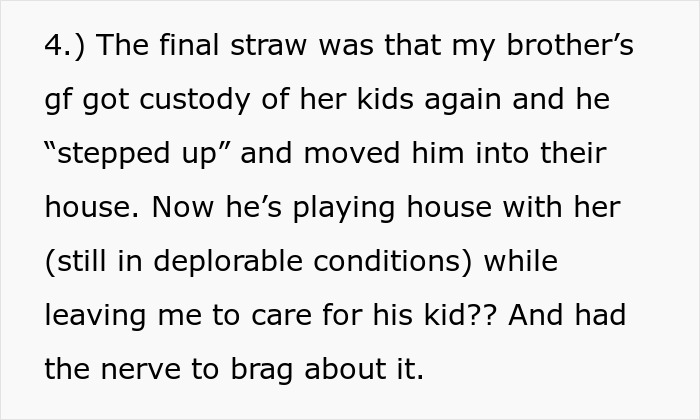
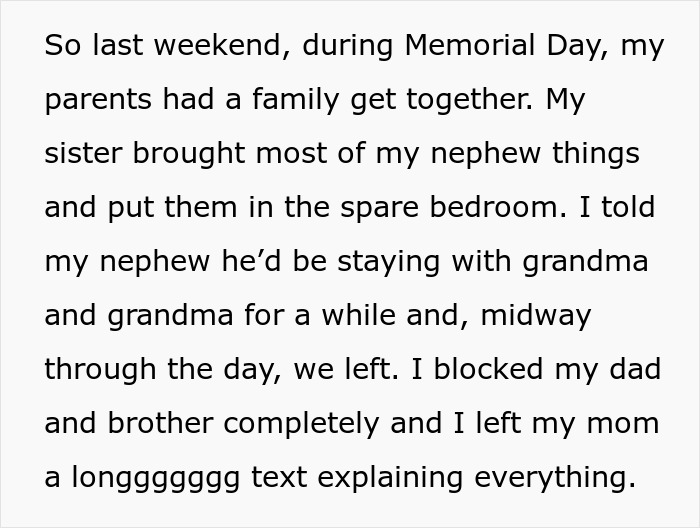
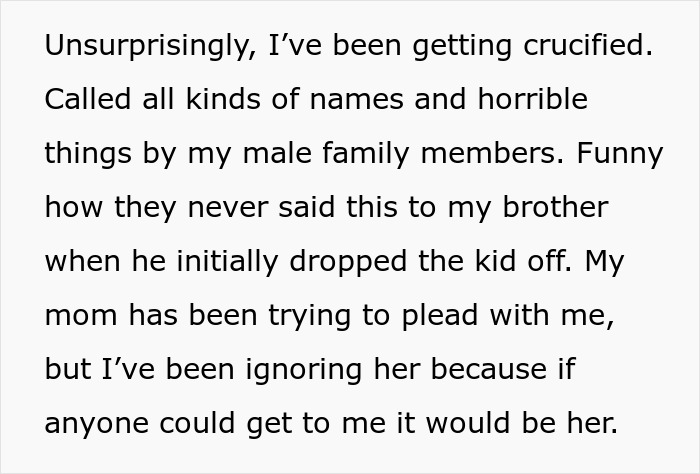

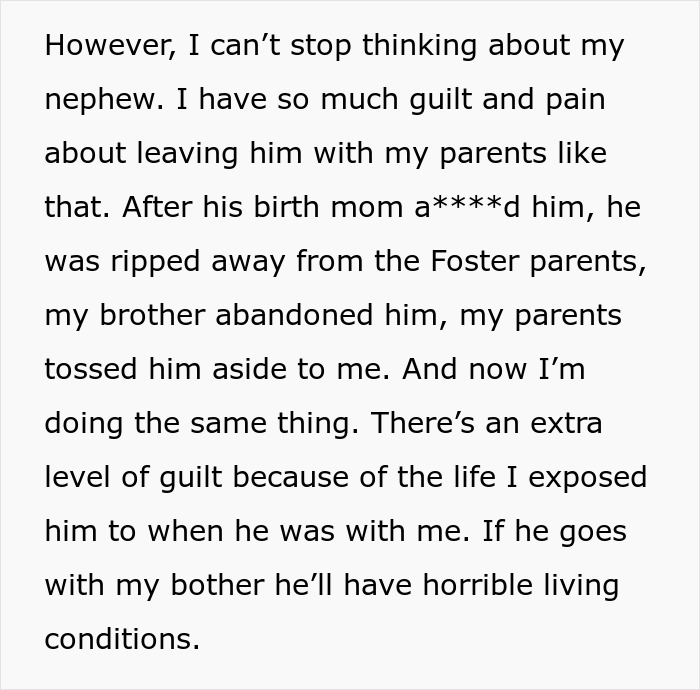
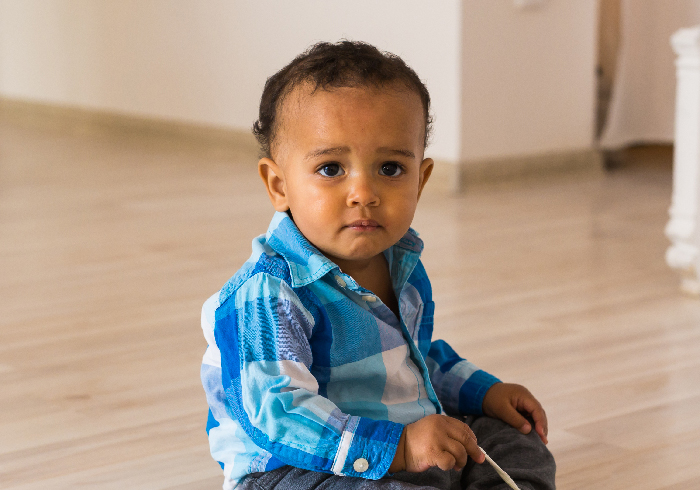
Image credits: Satura_ / envato (not the actual photo)
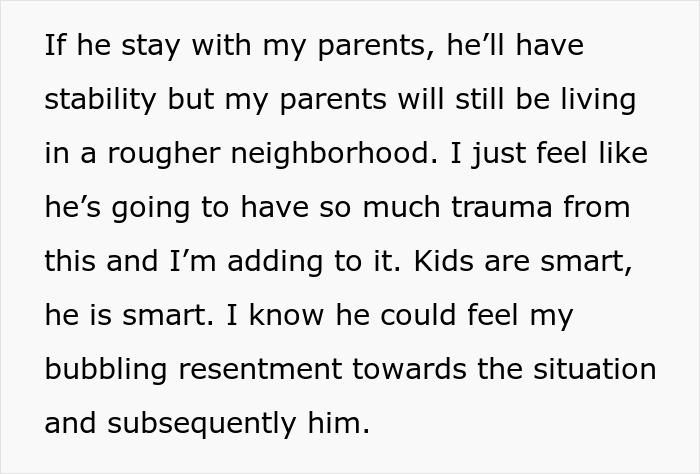
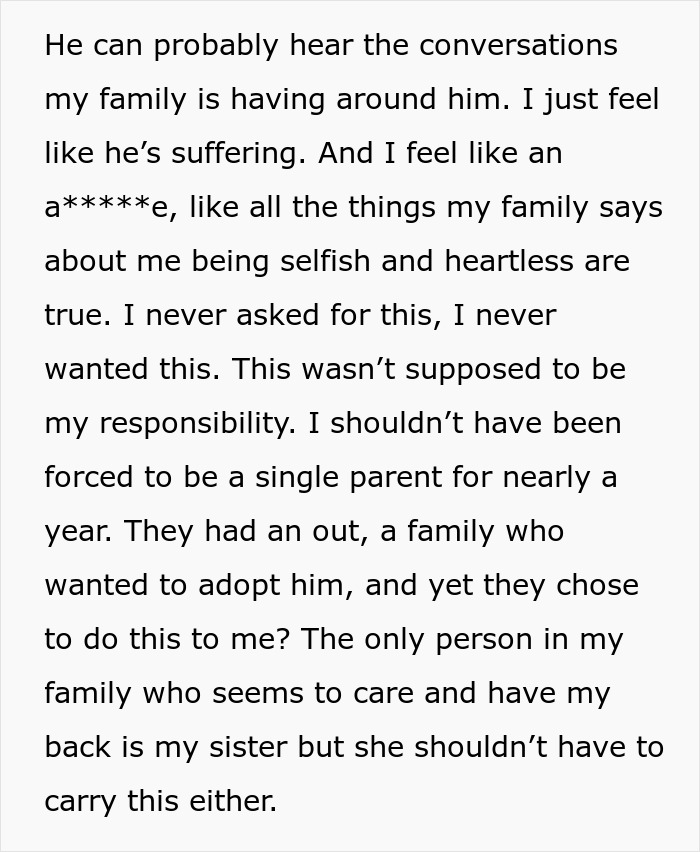
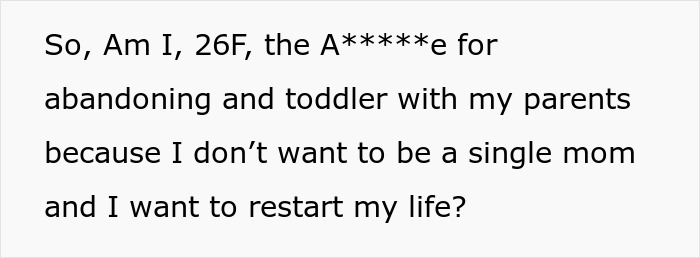
She gave a small update later
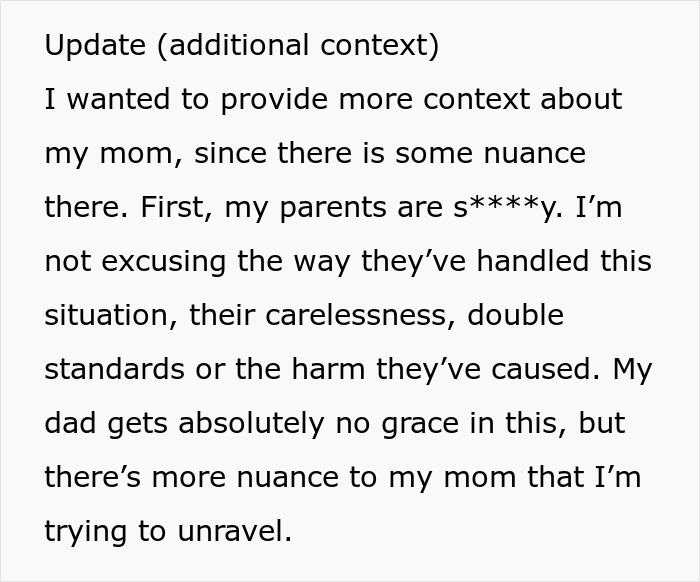
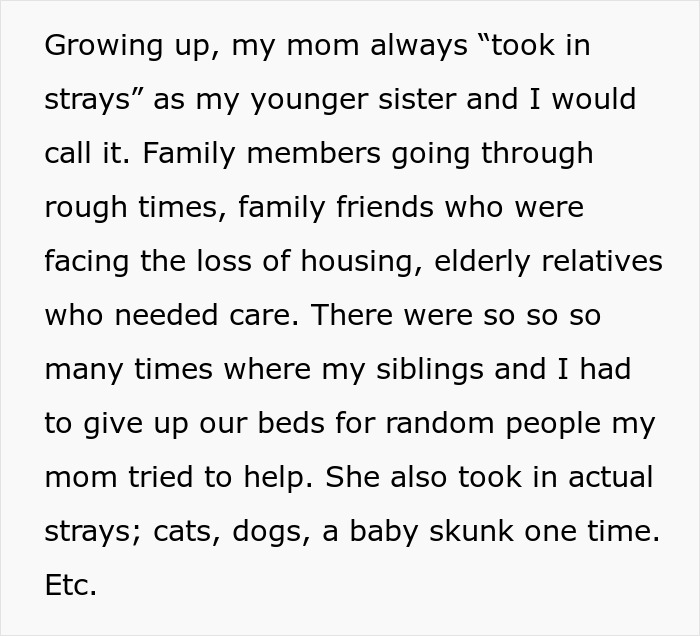
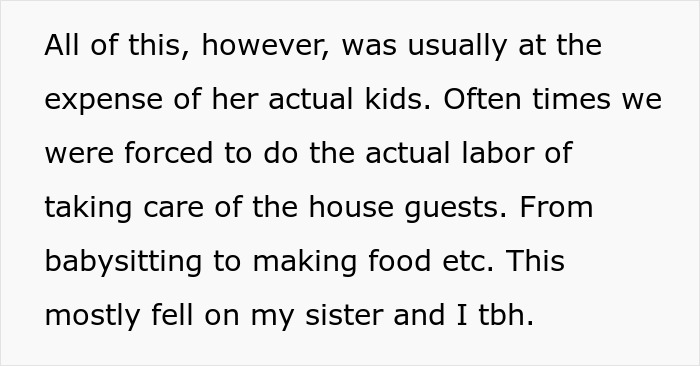


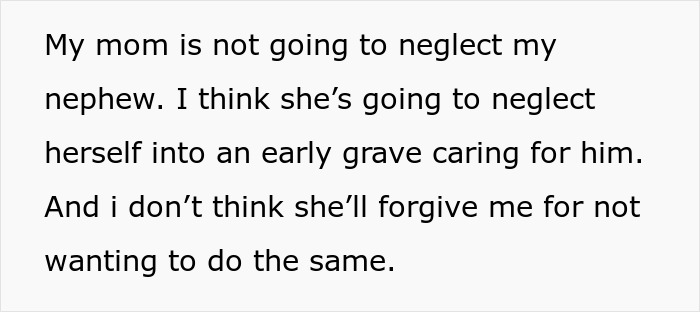
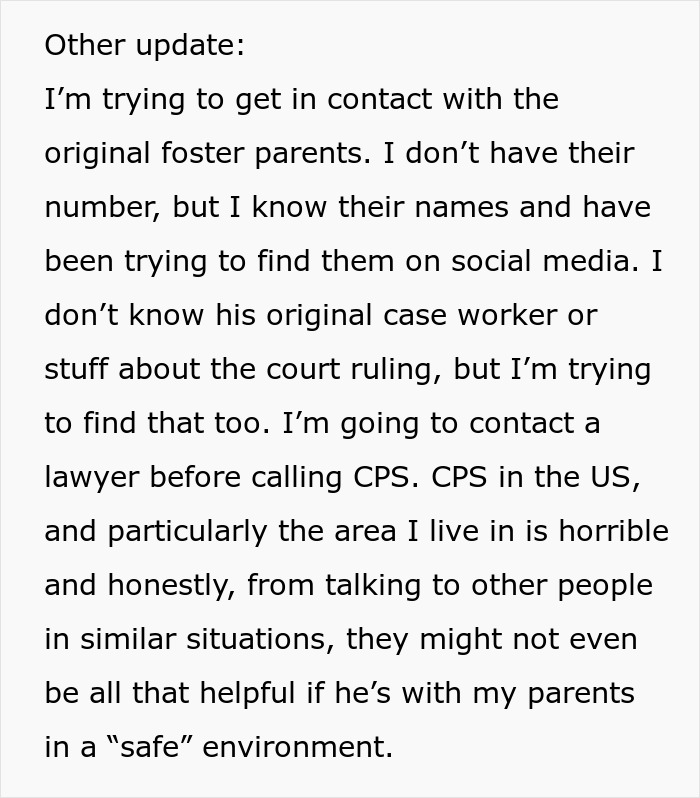
Image credits: Ill-Glass1012
Too many adults use their families as a crutch to avoid childcare
When parents abandon their responsibilities, it’s rarely the children who suffer alone. The emotional and financial burden inevitably falls on extended family members, grandparents, aunts, uncles, and siblings, who step into roles they never signed up for. This pattern of absent parents dumping childcare responsibilities on relatives has become a widespread phenomenon with devastating consequences for entire family systems. The statistics paint a stark picture of how common this problem has become. In 2023, about 2.1 million grandparents were responsible for their grandchildren, often stepping in when parents failed to fulfill their basic obligations. 21% of grandparents who are taking care of their grandkids are living below the poverty line, highlighting how this burden creates financial strain for family members who are often least equipped to handle additional expenses.
The definition of deadbeat parenting goes beyond simple financial neglect. A “deadbeat dad” can be defined as a form of child abandonment in which an absentee or nonresident father worsens his child’s living conditions by withholding his financial support, physical contact, and psychological, intellectual, and cultural tutelage. This abandonment creates a vacuum that family members feel morally obligated to fill, regardless of their own circumstances or capabilities. Several psychological and social factors drive deadbeat parents to offload their responsibilities onto family members rather than facing their obligations directly. The most obvious is simple avoidance, it’s easier to let someone else handle the hard work of parenting while maintaining the illusion that the children are still being cared for. This allows absent parents to avoid guilt while not actually stepping up to their responsibilities.
Family dynamics often enable this behavior through what experts call “rescue patterns.” Grandparents, particularly, often feel compelled to protect their grandchildren from the consequences of their own child’s failures. This well-intentioned response inadvertently enables the deadbeat parent’s behavior by providing a safety net that removes the immediate consequences of their abandonment. The burden on extended families goes far beyond occasional babysitting. Single parents are often overburdened with the responsibilities of 2 parents, face social stigma, and lack social support, as a result they have difficulty spending time with their children, but when deadbeat parents abandon their roles entirely, these challenges multiply exponentially for whoever takes over their responsibilities.
Research shows that the childcare contribution of non-resident fathers is very low, accounting for just 6 percent of total time when the mother is in a single-parent household, and just 1 percent of total time when the mothers is living with a boyfriend. This minimal involvement forces other family members to compensate for the massive gap in childcare, emotional support, and financial responsibility. The impact extends beyond the immediate caregiving burden. Absent fathers increased the risk of their children developing behavioral problems, engaging in criminal behavior, and experiencing poverty, creating additional challenges for family members who must now deal with both the absence of the parent and the behavioral consequences of that absence.
Absentee parents are a multi-billion dollar issue
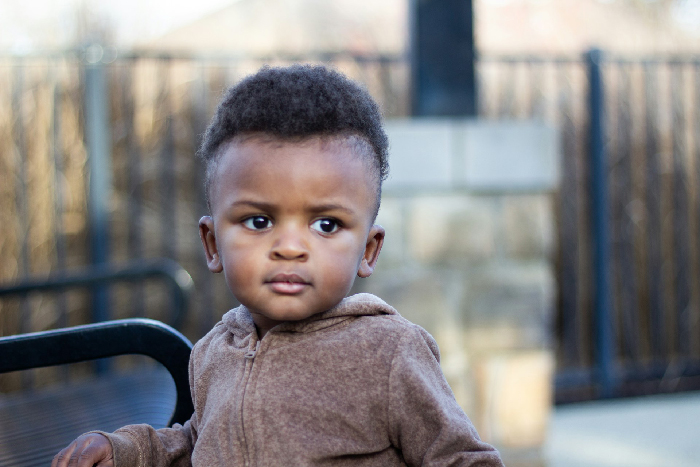
Image credits: Paris Lopez / unsplash (not the actual photo)
Many deadbeat parents rationalize their behavior by claiming that leaving children with family members is “better for everyone involved.” They may argue that grandparents have more time, that children need stability, or that family members are better equipped to provide care. These justifications mask the fundamental truth, that they’re avoiding responsibility while expecting others to clean up their mess. The economic impact on families is severe. The U.S. Census Bureau reports that 1 in 4 children (over 18.4 million) live without a father figure, contributing to a $53 billion annual economic burden due to increased poverty and social services costs. This burden doesn’t disappear, it simply shifts to family members who must now support children without receiving the financial contribution that the absent parent should be providing.
Inattentive and disengaged parenting has profound repercussions, as children need to be consistently loved, which occurs only through frequent interaction. When deadbeat parents dump childcare on relatives, they’re not just avoiding work, they’re depriving their children of essential bonding and development while placing enormous stress on family members who may not have the emotional, physical, or financial resources to properly fill that void. The cycle often perpetuates itself as family members, despite their best efforts, may not be able to provide the same level of attention and resources that two committed parents could offer. This creates additional stress and guilt for the caregiving relatives, while the absent parent continues to avoid accountability for their choices. Breaking this pattern requires family members to set clear boundaries and refuse to enable deadbeat parents’ behavior, though this is often easier said than done when children’s welfare is at stake. The tragedy is that while extended families step up out of love and necessity, their sacrifice often allows deadbeat parents to continue avoiding the fundamental responsibilities that come with bringing children into the world.
She clarified one detail in the comments

Many saw her point of view
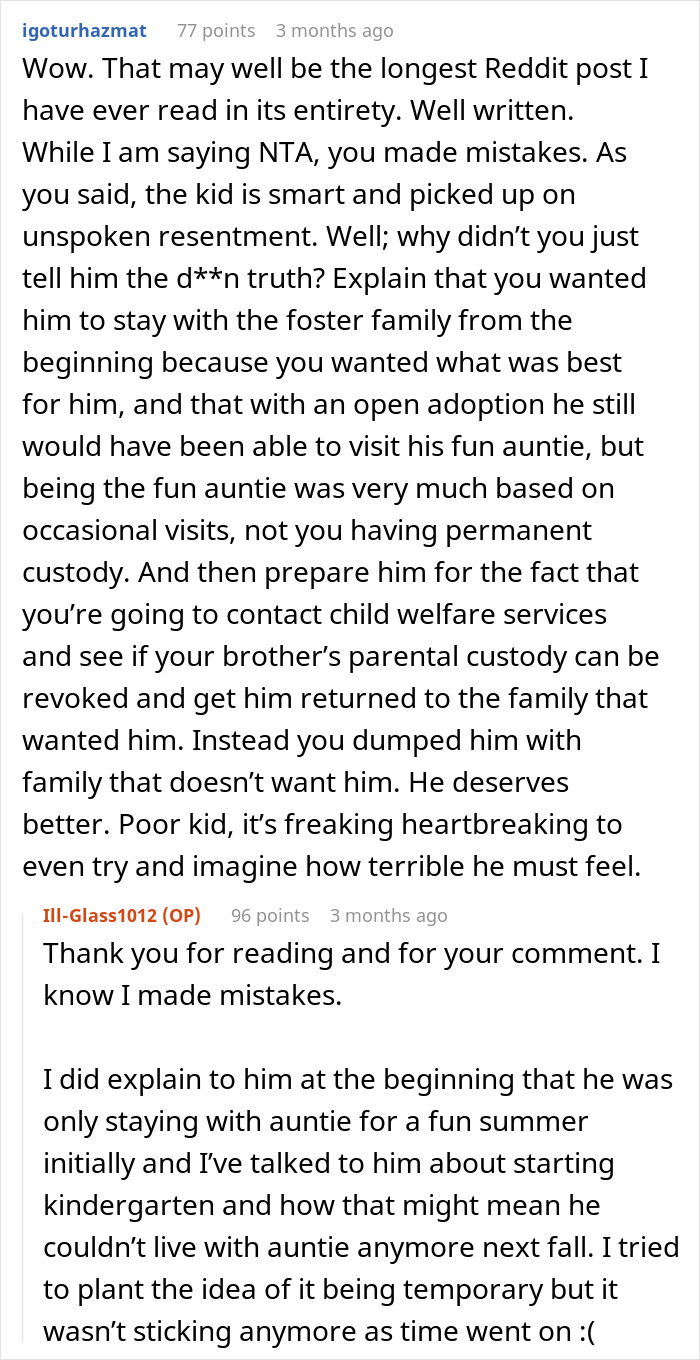
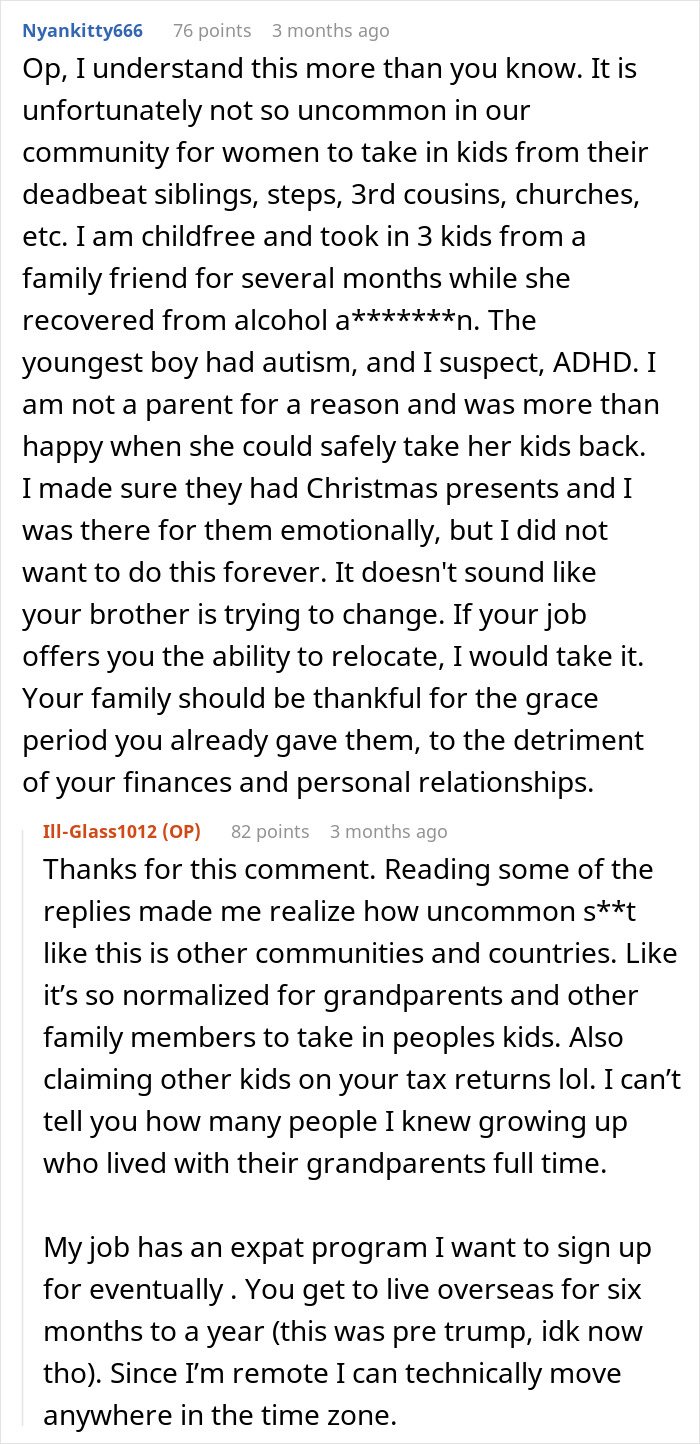
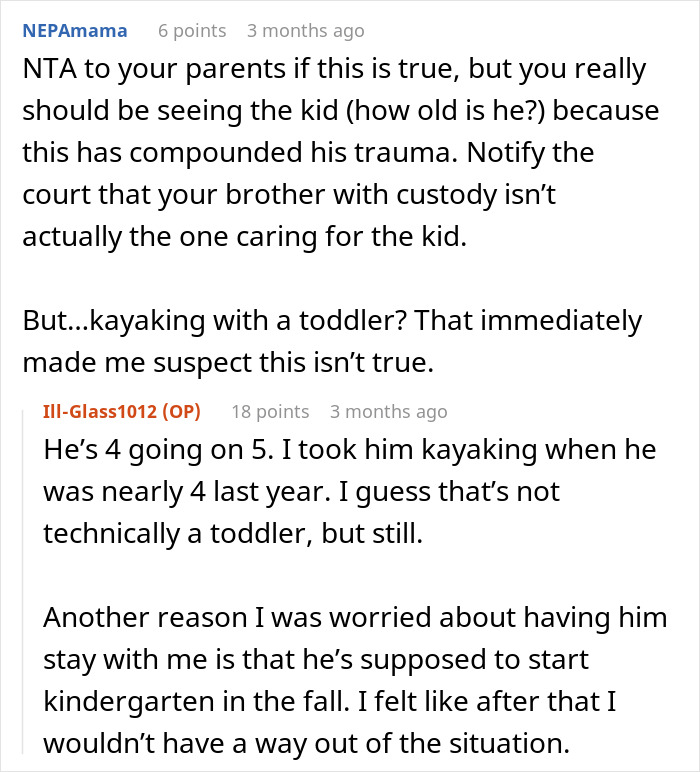
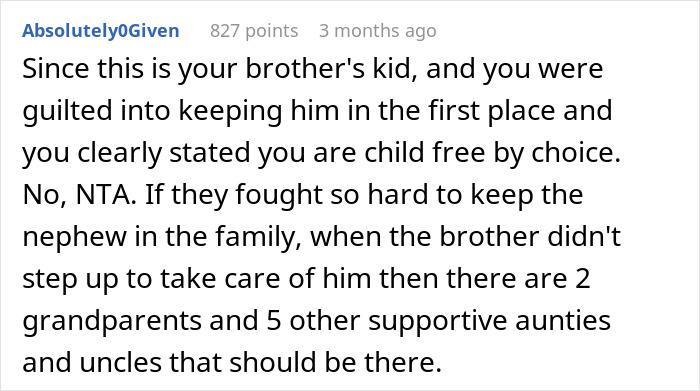
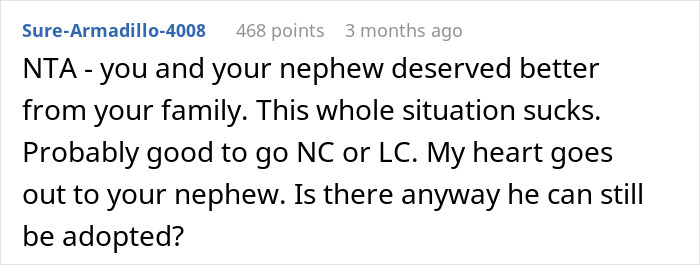
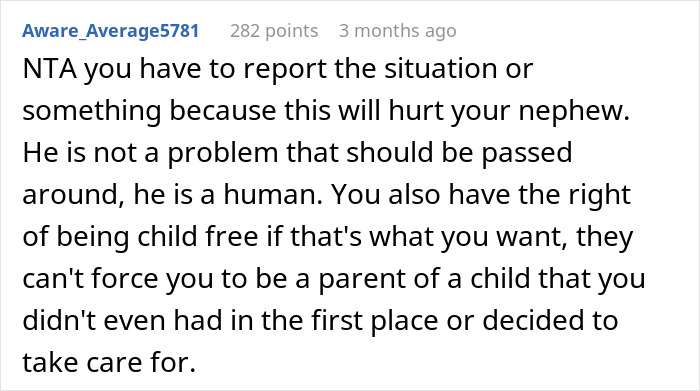


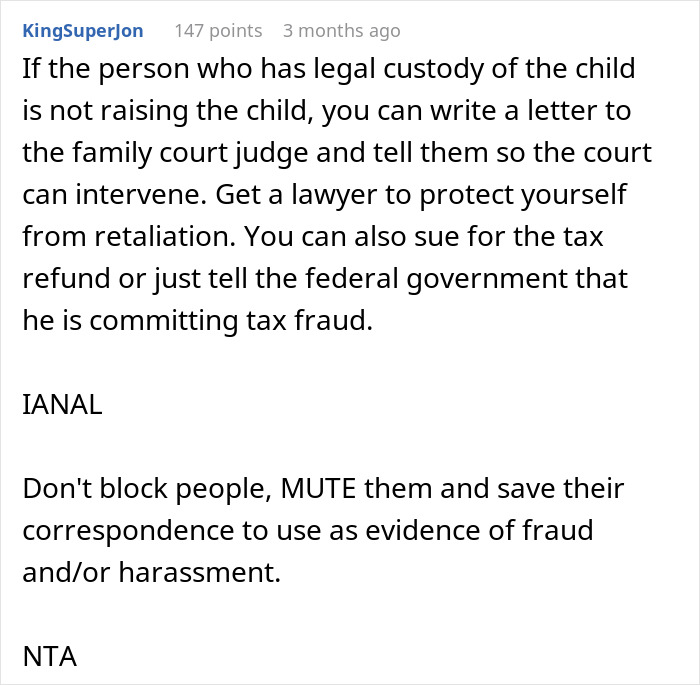
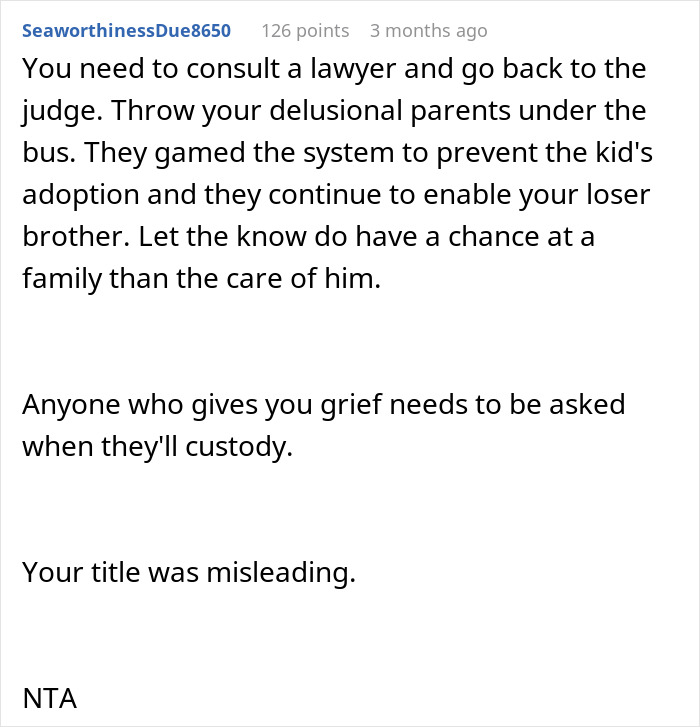


Others thought she was running away from responsibility
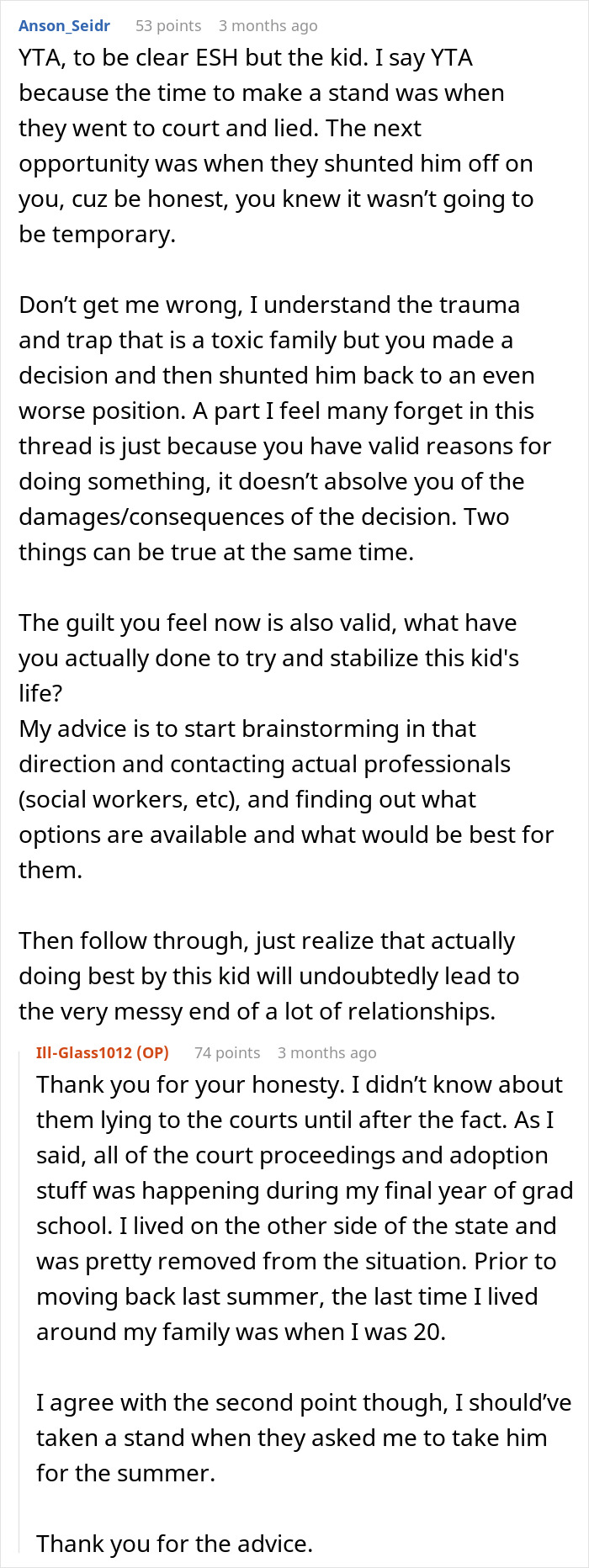
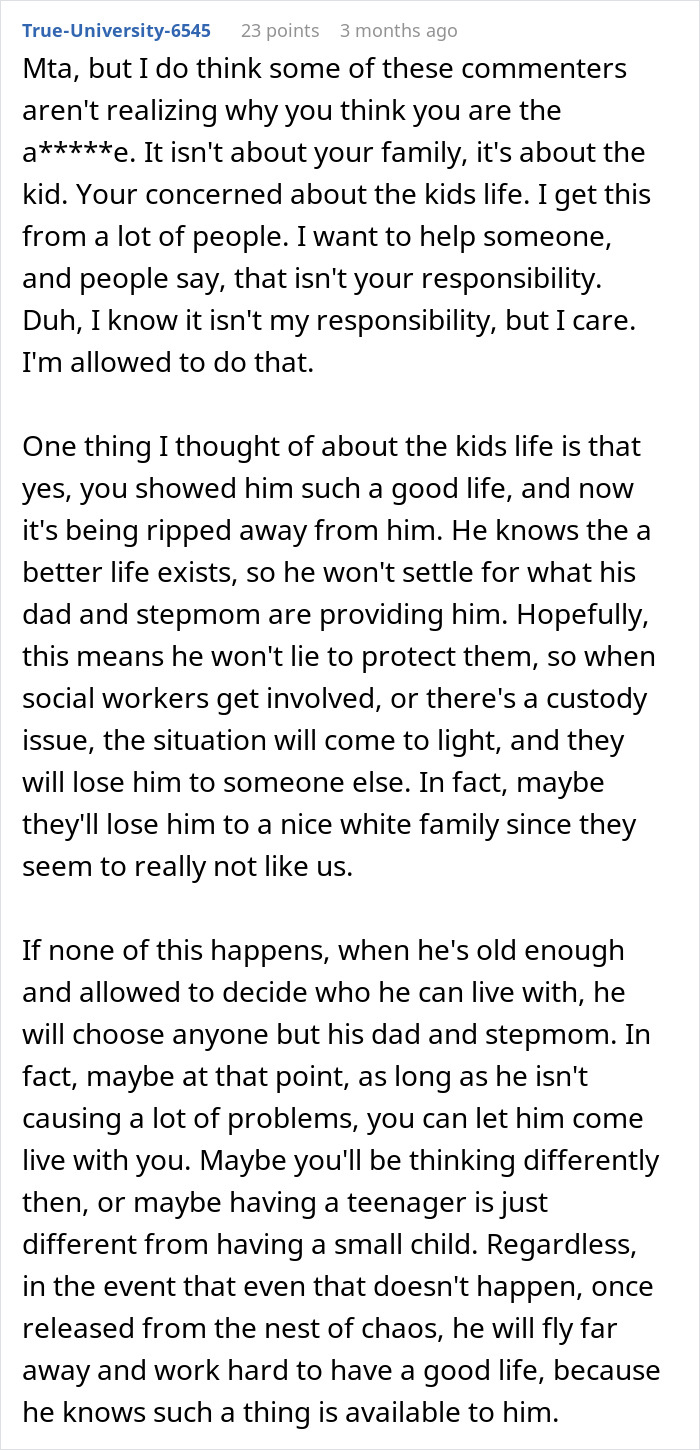
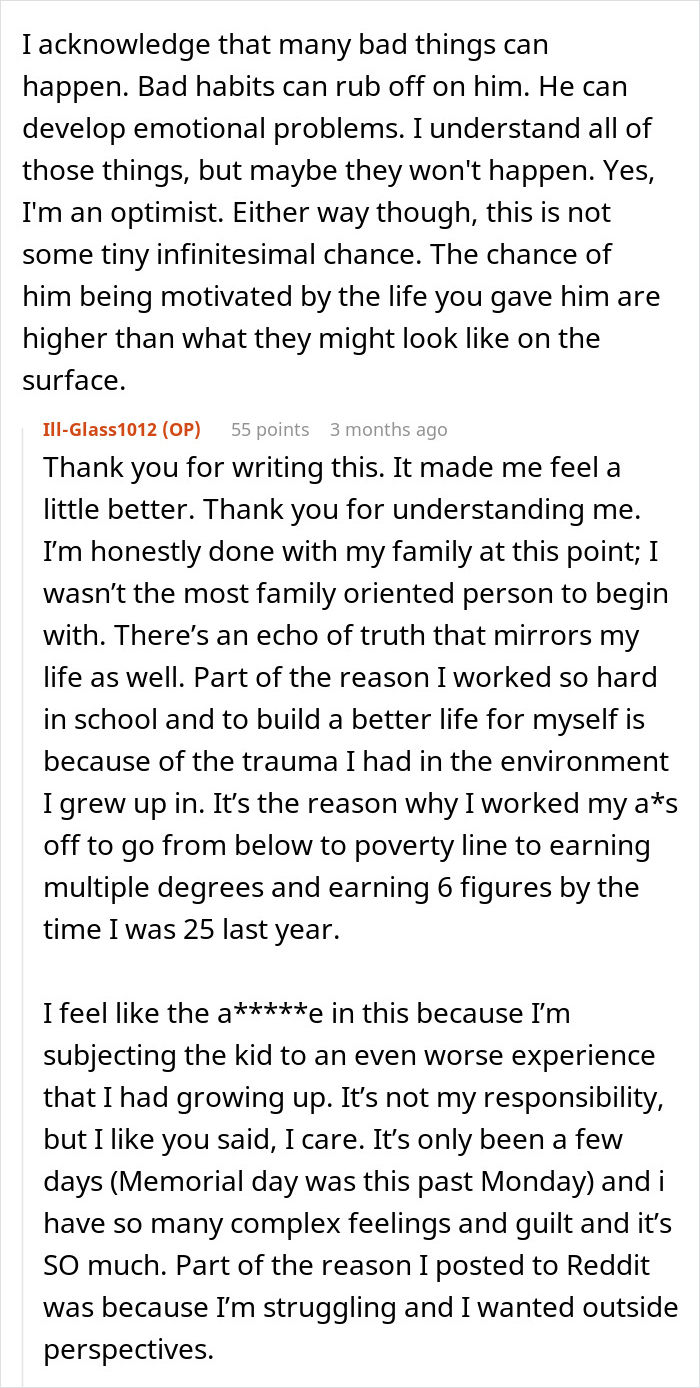
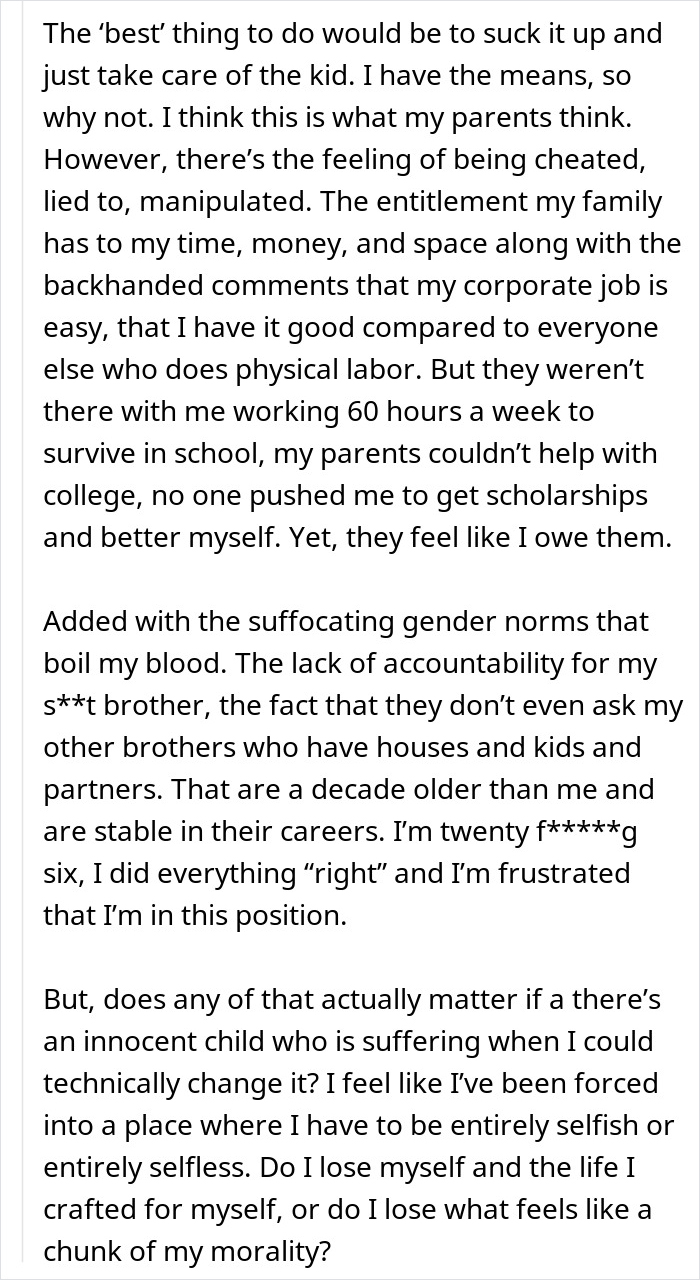

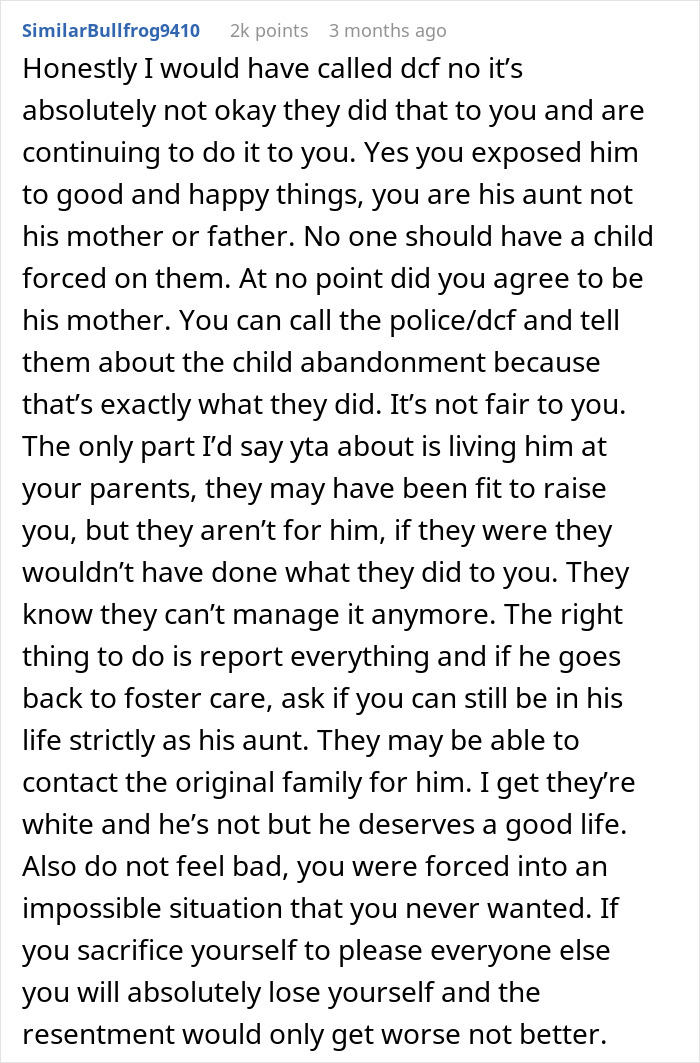
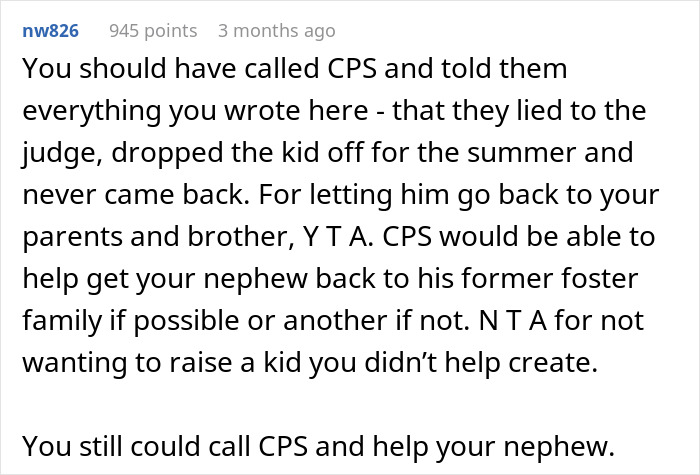
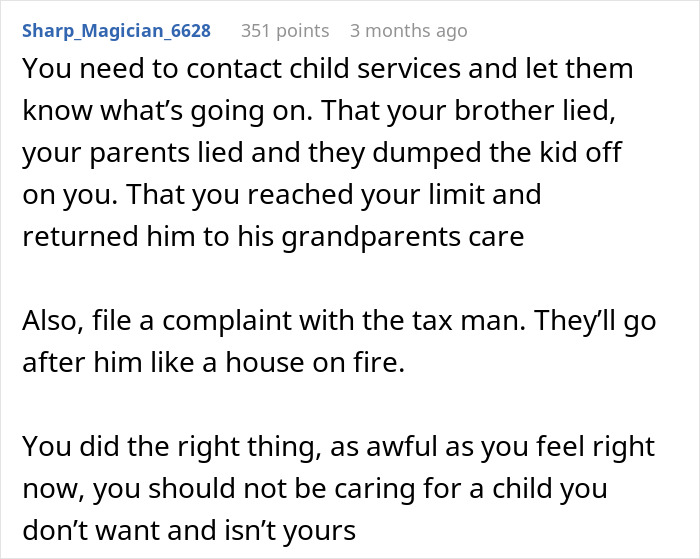
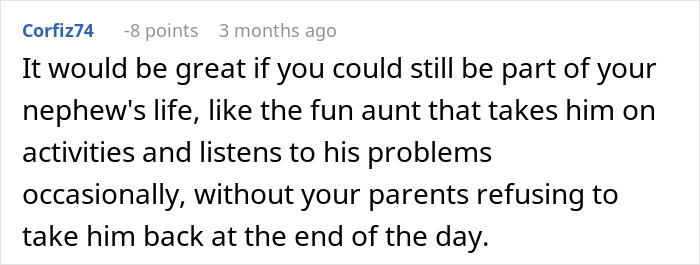
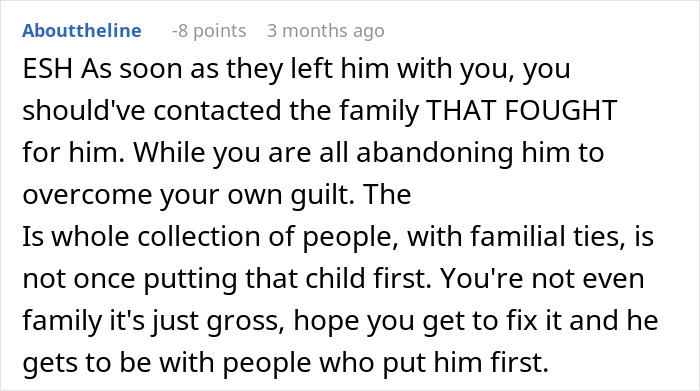
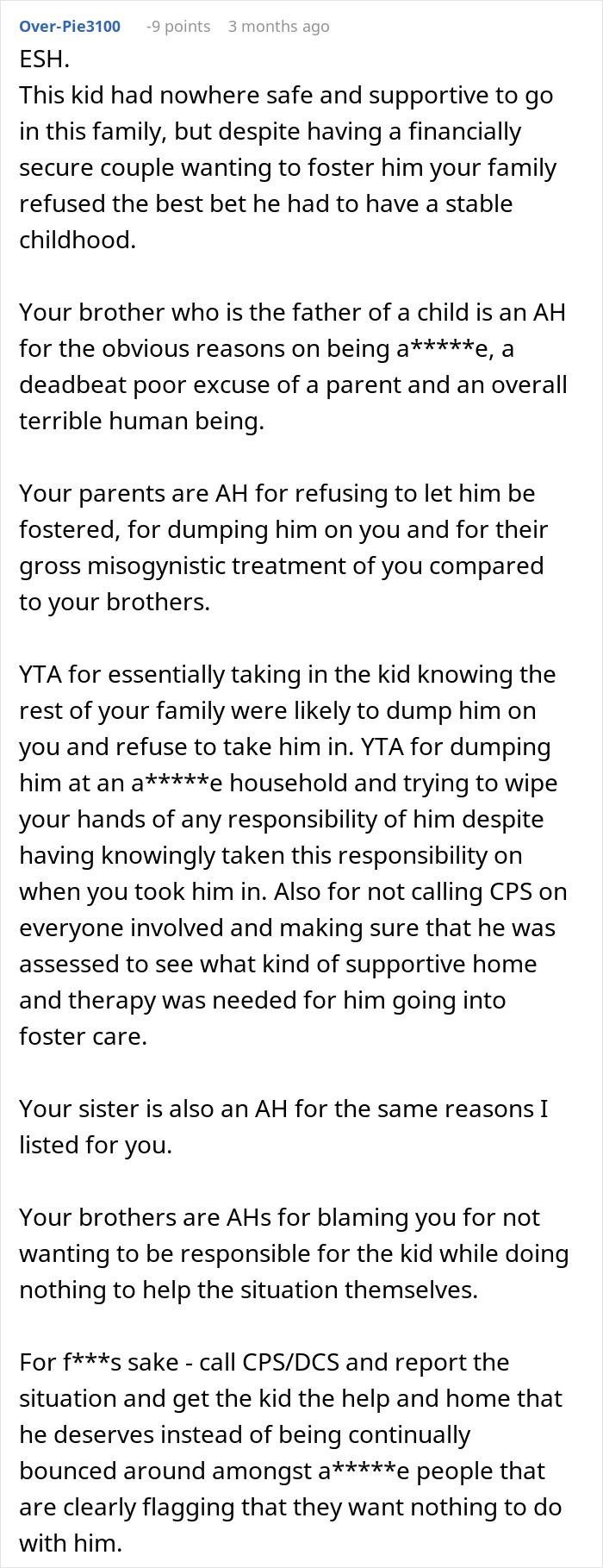
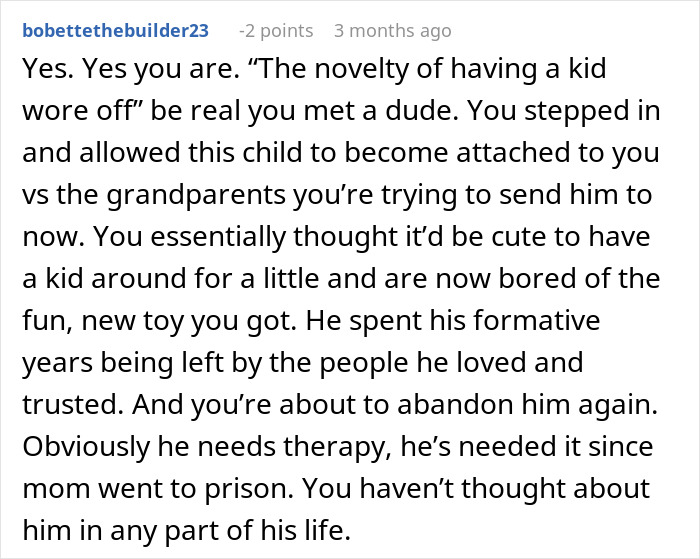
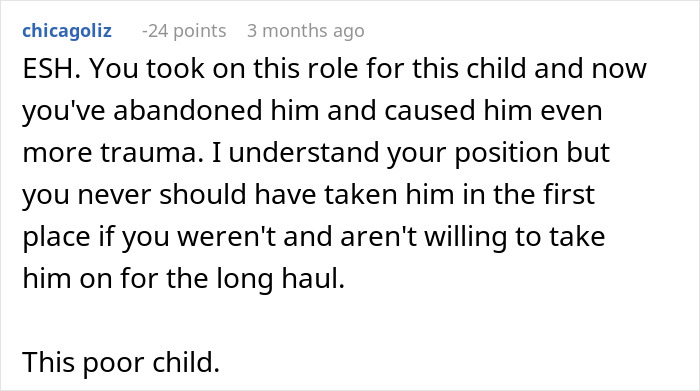
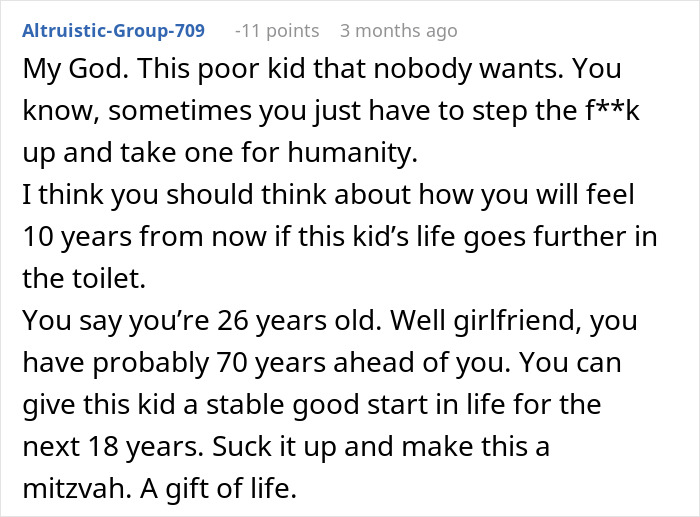
Some commenters also shared similar stories
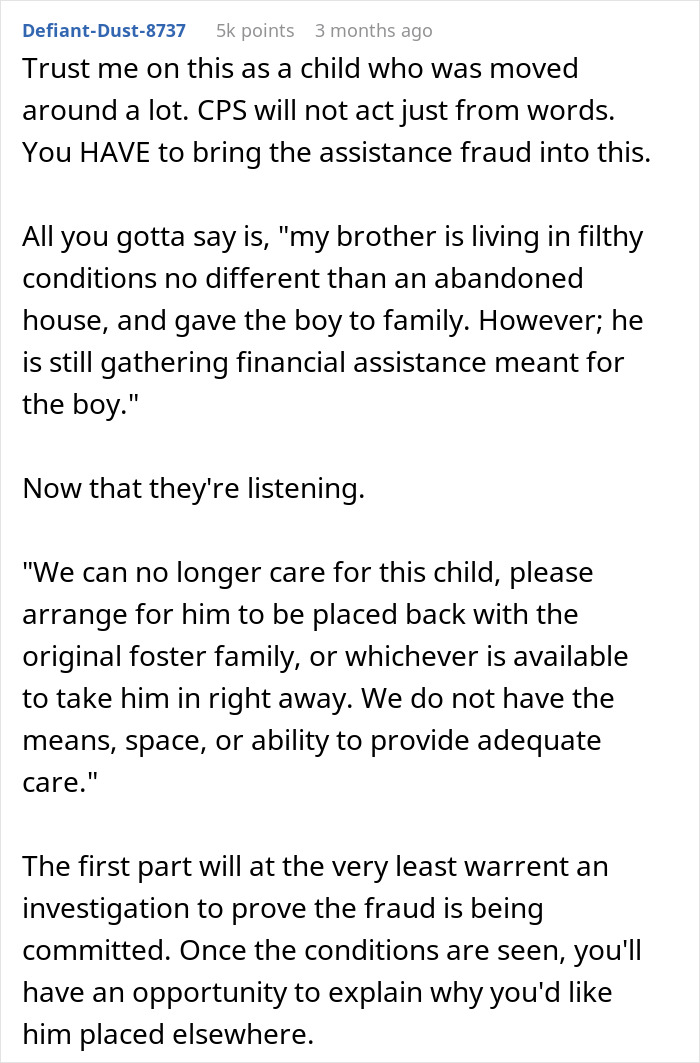
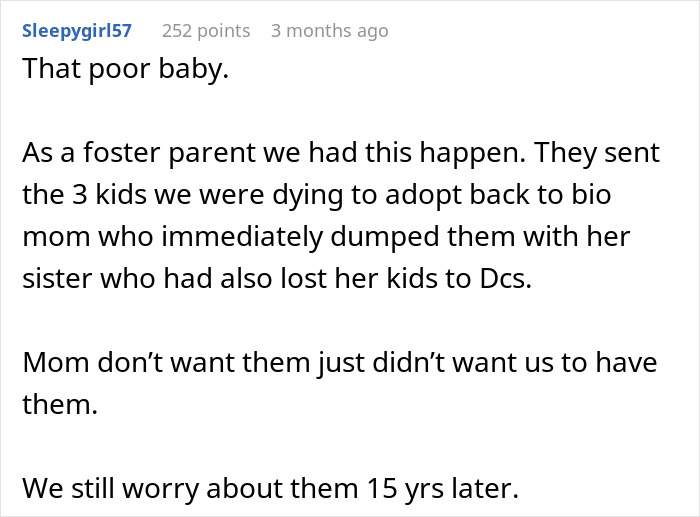
 Follow Us
Follow Us





